Jobs, jobs, jobs: 8 highlights from PM Lee Hsien Loong's May Day Rally
Sign up now: Get ST's newsletters delivered to your inbox
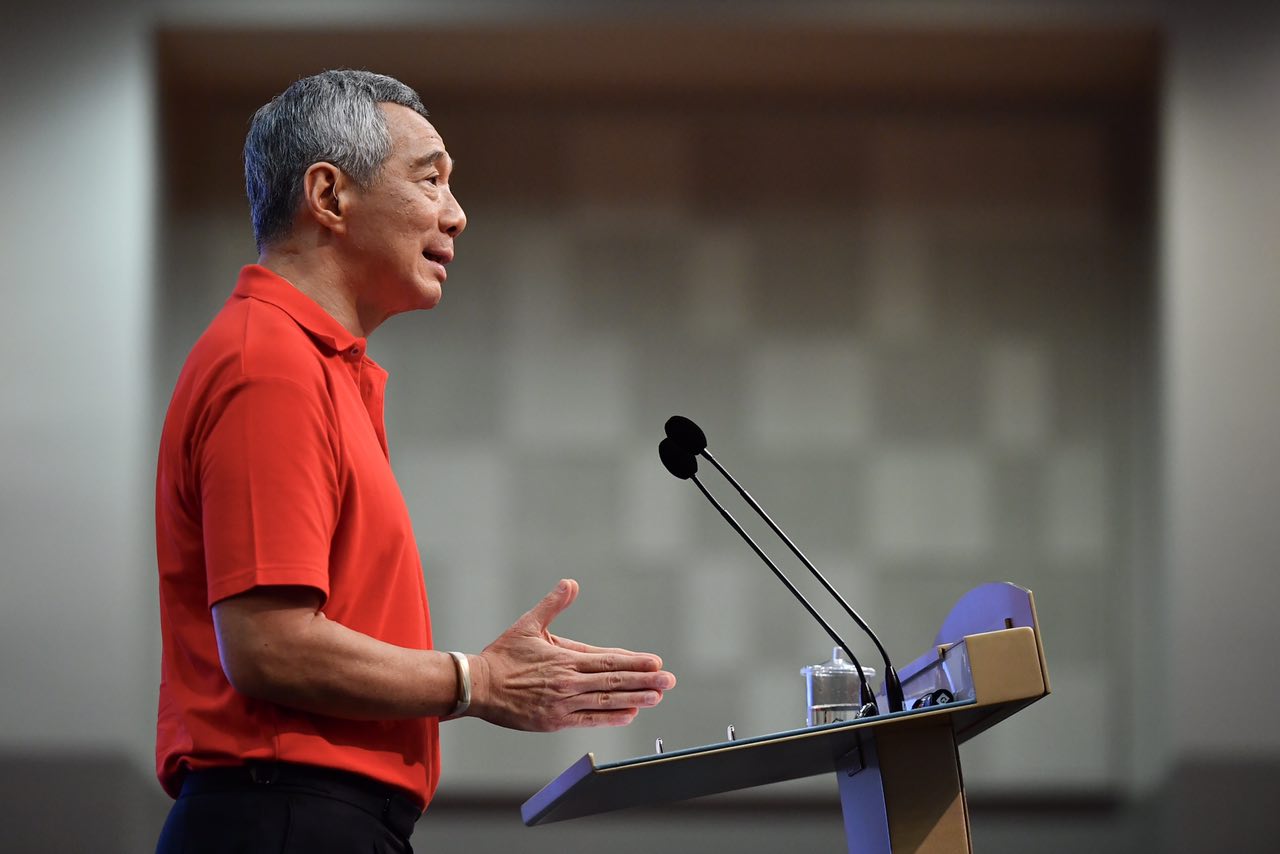
Prime Minister Lee Hsien Loong making his annual May Day Rally speech.
ST PHOTO: LIM YAOHUI
Lydia Lam
Follow topic:
SINGAPORE - Singapore's economy is doing better than it did last year, but Prime Minister Lee Hsien Loong maintains a "cautiously optimistic" outlook, he said in his May Day Rally speech on Labour Day (May 1).
Growth this year is forecast at 1 to 3 per cent, but there is a good chance it will exceed last year's 2 per cent, he said at the badminton hall at Our Tampines Hub.
However, PM Lee warned that redundancies will continue to grow even as Singapore's economy grows, because of restructuring. And he laid out three strategies for the country to continue to prosper: create new jobs, place displaced workers in alternative jobs and train workers to grow in their jobs.
Here are eight highlights of his speech.
1. Better growth, but redundancies will grow as well
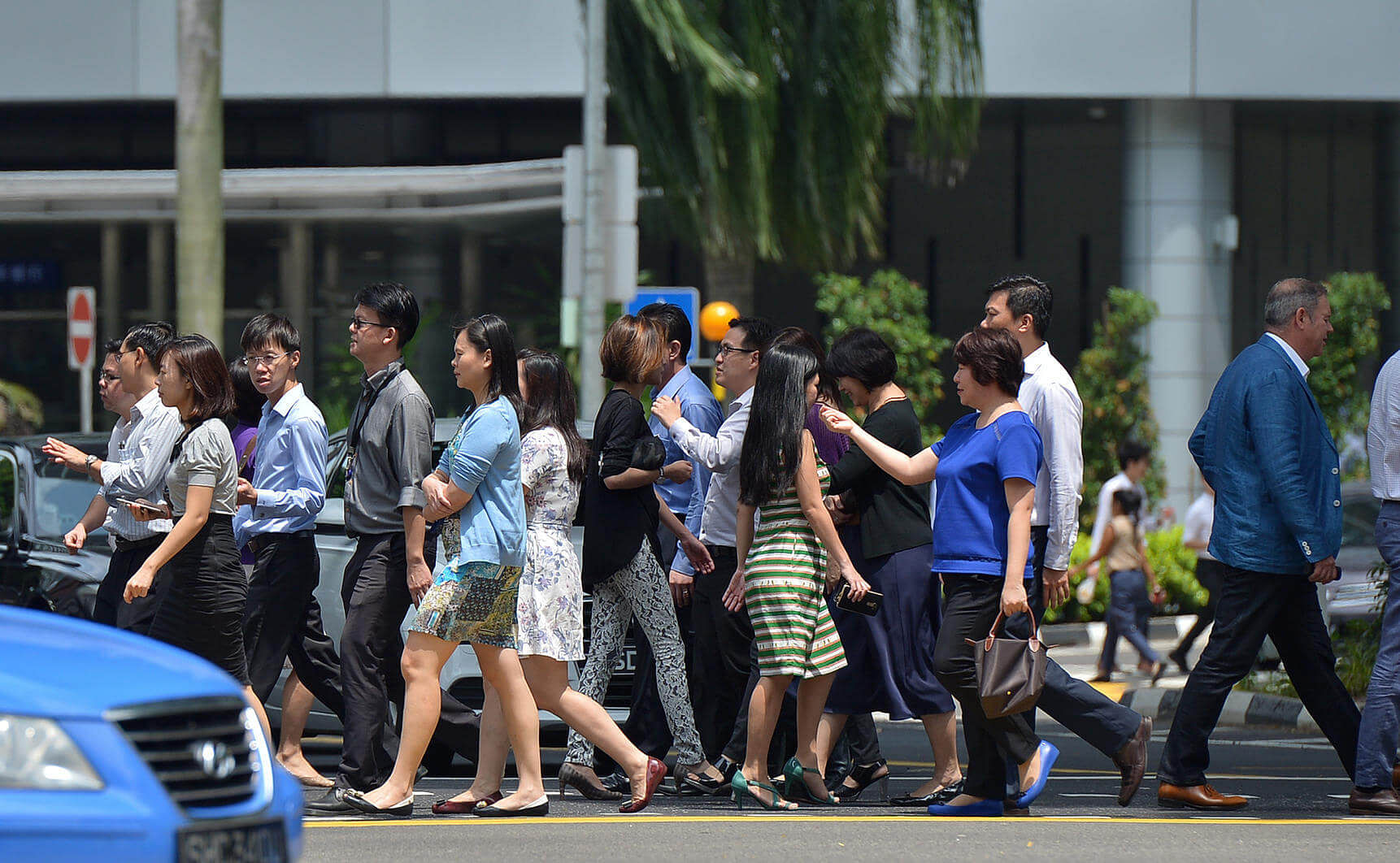
Singapore is poised to do better economically this year, but ongoing restructuring means redundancies will continue, as well.
Growth for Singapore this year is officially forecast at 1 to 3 per cent, but there is a good chance it will exceed last year's 2 per cent, PM Lee said.
The economic growth is uneven, with some sectors, like retail, going slower than others.
Redundancies went up last year, and even with better growth this year, a steady trickle of redundancies is to be expected.
This is "inevitable", as some workers will be displaced as companies restructure.
Unemployment rate has crept up to about 2.3 per cent, but this is still low compared with other developed countries where rates are 5 to 10 per cent, PM Lee said.
And unemployment could go up still, as Singapore feels the same pressures other developed countries face. With this, there is a need for continued restructuring, and Singapore faces the issues that come with an ageing workforce - retrenched older workers find that it takes longer to find replacement jobs.
2. Heng Swee Keat to take over Tharman Shanmugaratnam as head of Future Economy Council
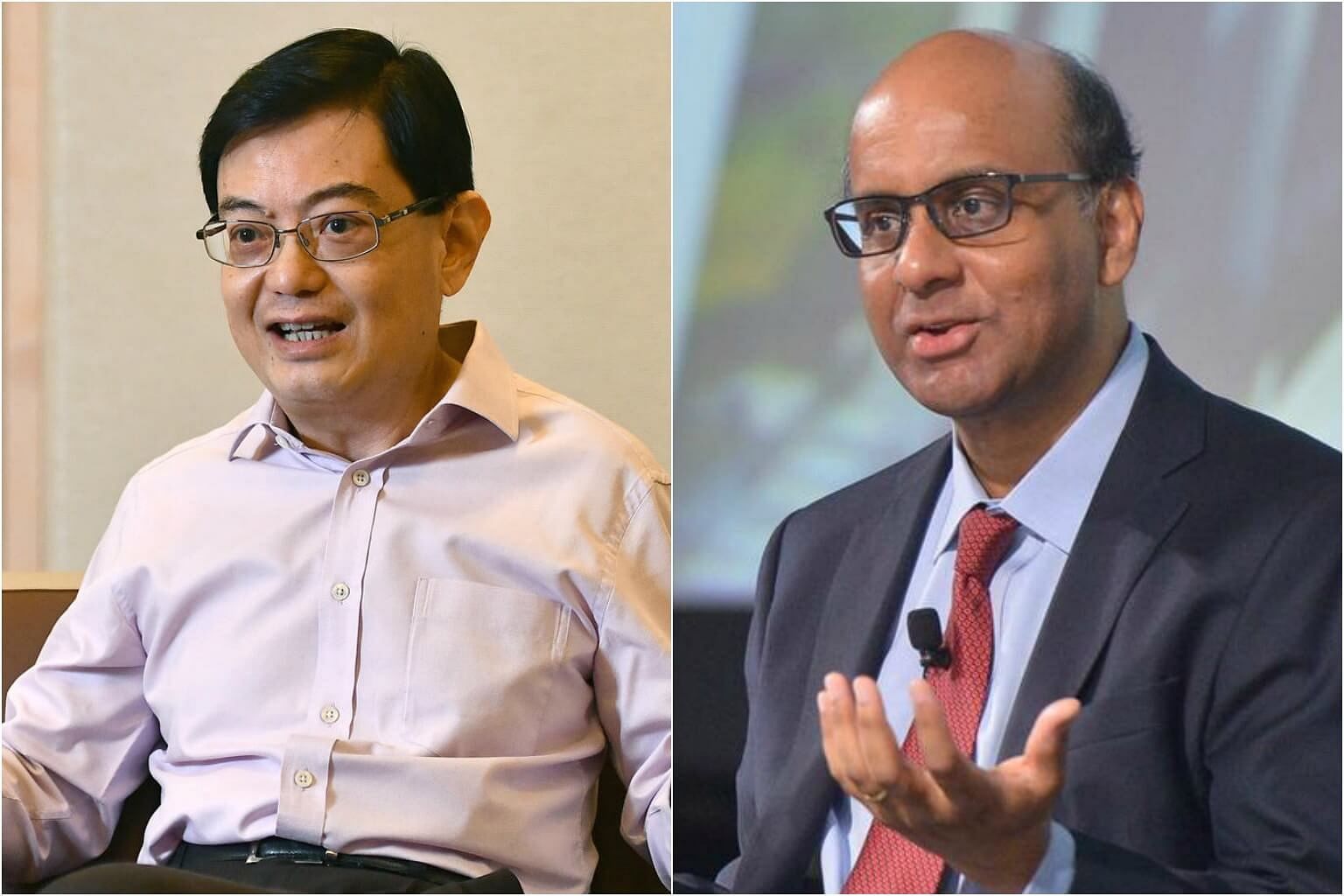
Finance Minister Heng Swee Keat will take over the reins from Deputy Prime Minister Tharman Shanmugaratnam of a national council overseeing skills and innovation efforts.
The tripartite council, known as the Council for Skills, Innovation and Productivity (CSIP), was previously chaired by DPM Tharman, who is leading the SkillsFuture effort.
The council will be renamed the Future Economy Council.
He will work with other ministers including Labour Chief Chan Chun Sing, Minister for Trade and Industry (Industry) S Iswaran and Education Minister (Higher Education and Skills) Ong Ye Kung.
The council will implement recommendations by the Committee on the Future Economy which submitted its report in February, and the efforts by the council will extend beyond the current term of government, PM Lee said.
"It is their generation of leadership who will have to work with you to take this country to new heights," he said.
3. United States-Singapore ties still friendly amidst US' trade balancing
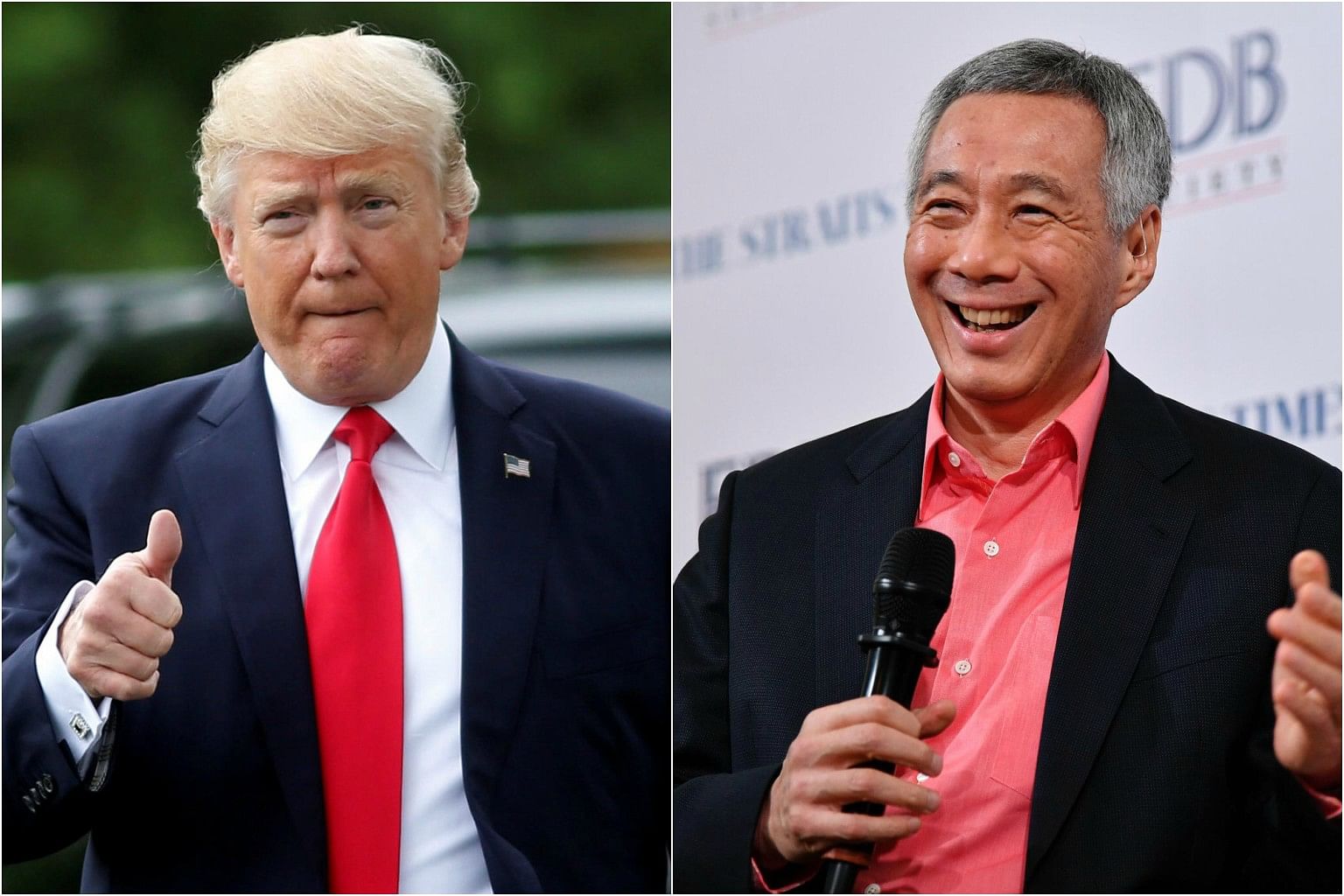
Singapore's ties with the US remain very friendly, said PM Lee, who said he had "a good phone call" with US President Donald Trump on Sunday (April 30).
The US has a big trade surplus with Singapore, and so should not have a direct issue with the country - it has been raising concerns with countries like China that it has a trade deficit with.
However, the US under President Trump is targeting countries one by one and viewing trade as a win-or-lose situation.
If a trade war breaks, out, Singapore will be affected even if not directly involved, as its economy is so dependent on trade.
4. SMEs revamping to keep up
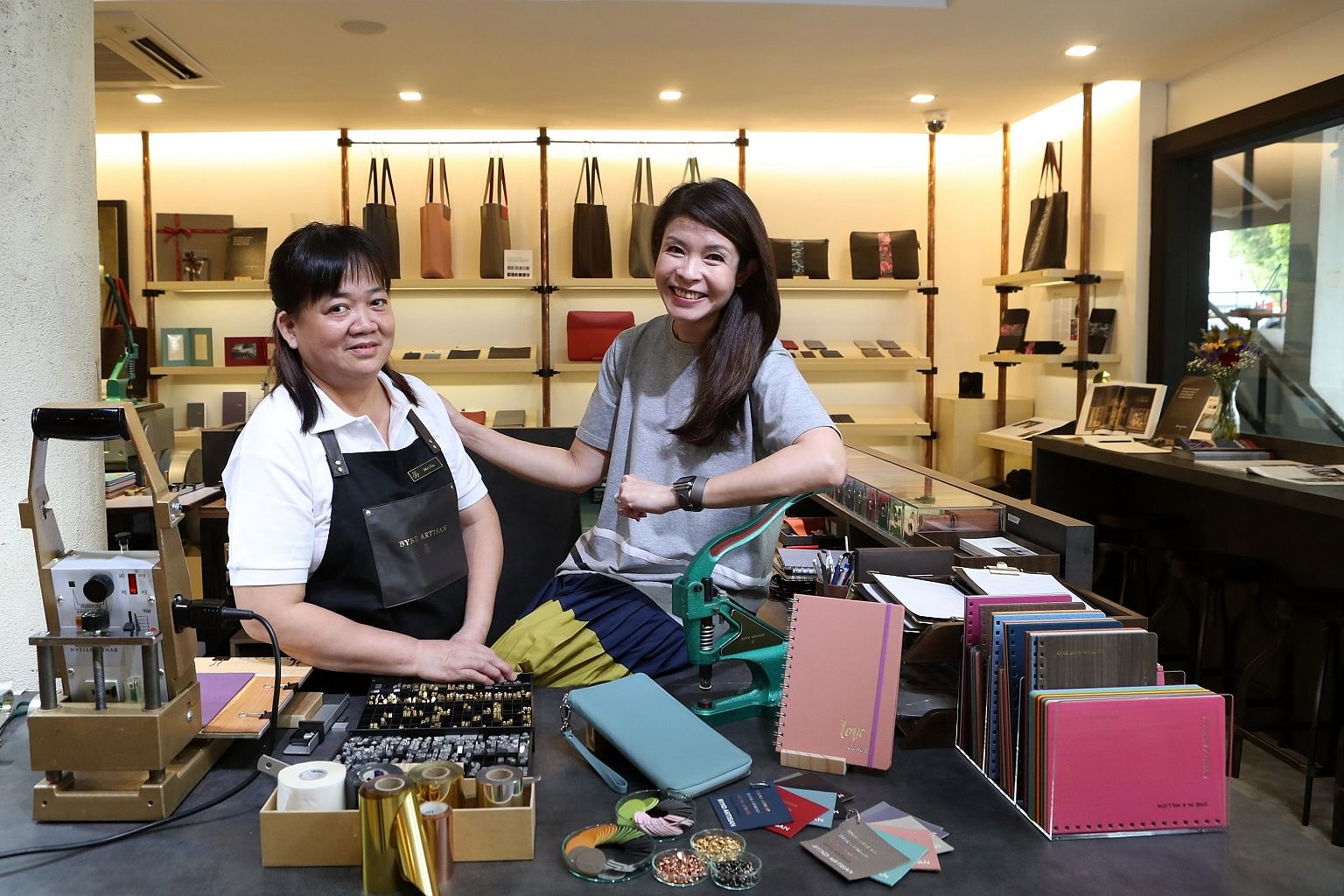
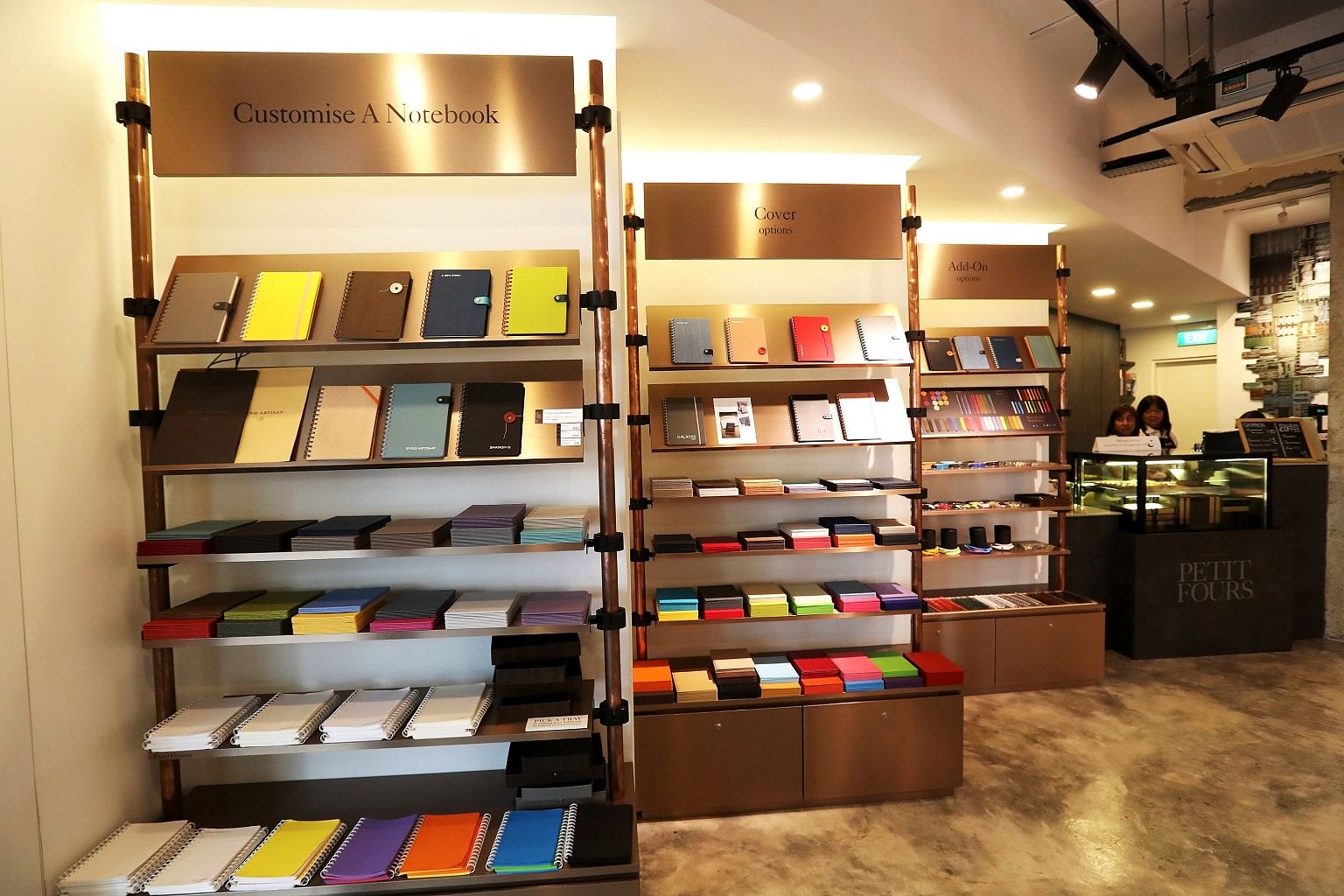
The Government is helping small and medium-sized enterprises (SMEs) to upgrade themselves, expand here and overseas, and build new capabilities.
One example given of a business that successfully reinvented itself was Singaporean company Grandluxe, which started in 1942 as a book-binding workshop along Mohamad Sultan Road.
It began with book-binding as its core business, tried to expand into printing, but as the digital revolution swept in, many turned to online publishing.
Now, it is a new company called Bynd Artisan, and has turned book-binding into a premium craft, where personalised leather binding is done in-store.
Long-time employee Ms Tan Buay Heng is one of those who have benefited from the company's revamp.
She started out as a production operator manually binding books 40 years ago, and is today a craftsman, personalising leather notebooks for customers and training younger craftsmen.
Spring and IE Singapore are helping other SMEs find new niches where they can grow, the way Bynd Artisan has, PM Lee said.
5. Young workers in Singapore can find jobs relatively easily

Singapore's youth unemployment rate remains low, and graduates - whether from Institutes of Technical Education, polytechnics or universities - can find a job quite easily, PM Lee said.
This is compared with many other countries where youth unemployment rose after the financial crisis and has stayed stubbornly high. Even among those who have jobs, many are underemployed.
PM Lee cited places like South Korea and Taiwan, which have economics similar to Singapore's, where many young people "have either given up looking for jobs or taken on part-time work".
Singapore's success in youth employment is not accidental, and instead is because it makes sure schools prepare young workers properly for the job market, emphasising on on-the-job training and working with employers to tailor curriculum and internship programmes.
6. Three ways of looking at jobs: New jobs, helping displaced workers, and training
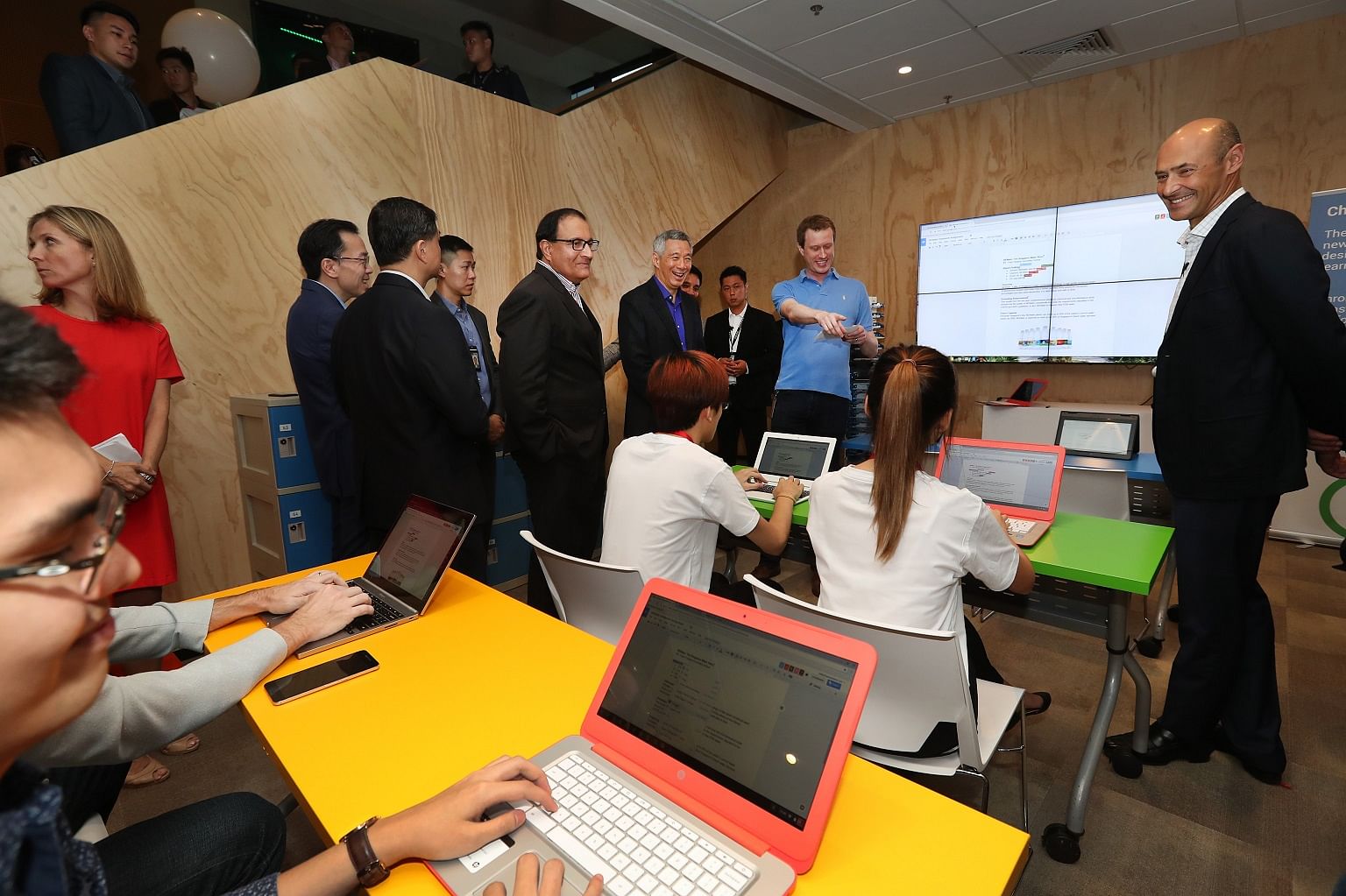
What is Singapore doing to continue to prosper? PM Lee cited three different ways of looking at jobs: Helping businesses create new jobs, placing displaced workers in alternative jobs, and training workers to grow in their current jobs.
The creation of new jobs involves bringing in new businesses and investments and upgrading existing companies.
One example of how the Economic Development Board (EDB) has helped get multinational corporations (MNCs) to invest in Singapore is the Micron example.
The US-based electronics giant invested $5.4 billion and expanded its facility at Woodlands, with 500 jobs.
Google also opened its new campus in Mapletree Business City last year, and there are 1,000 Googlers there.
In the chemical industry, German company Evonik is opening a second plant on Jurong Island, expected to become operational in 2019.
7. Singapore's port handling more volume this year, but challenges remain

Singapore's port, which is crucial to the country's economic health, is doing better this year, PM Lee said.
He quoted Ms Jessie Yeo from Singapore Port Workers Union, who told him last year that on one day, PSA's Tanjong Pagar Terminal did not receive a single ship during two shifts out of three.
Ms Yeo updated him this year that things are looking a lot brighter, with the port handling more volume. It is expected to be busy for the rest of the year.
Port operator PSA is also shifting operations and workers to Pasir Panjang, which is more efficient and has high-tech facilities.
Workers were retrained and did not lose their jobs in the shift, PM Lee said.
Even so, the outlook is not quite certain as Singapore's port faces competition from ports like Tanjung Pelepas and Port Klang. Malacca is building a new port, and the competition is also automated.
However, the long term plan is for a move to Tuas Port, starting in 2021, where operations will be even more advanced and efficient.
8. Unity is the way forward in uncertain economic times

PM Lee ended his speech by emphasising that all sectors and segments of society must remain united in the face of further challenges.
It will take all segments -workers and employers, managers and professionals, foremen and the rank-and-file employees - to dig deep when sacrifices are needed, before success can be shared by all, PM Lee said.
"I am confident we will overcome the challenges and emerge stronger," he said. "Each one of us, with one another, for one another, for Singapore. That is the way to make sure that every May Day, we will have cause to celebrate. Let us make it happen, to give our children a bright future!"

